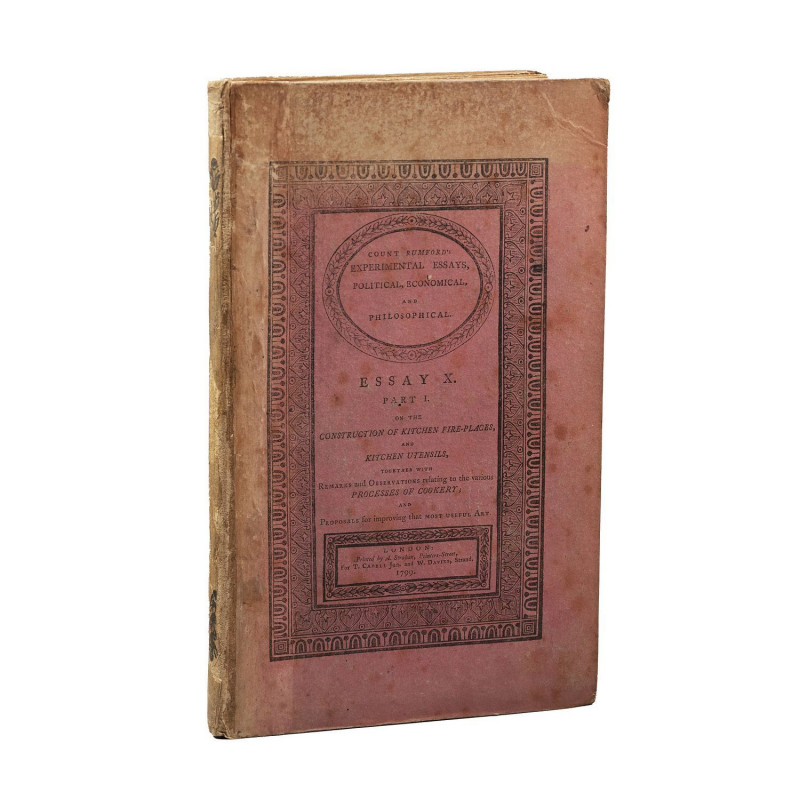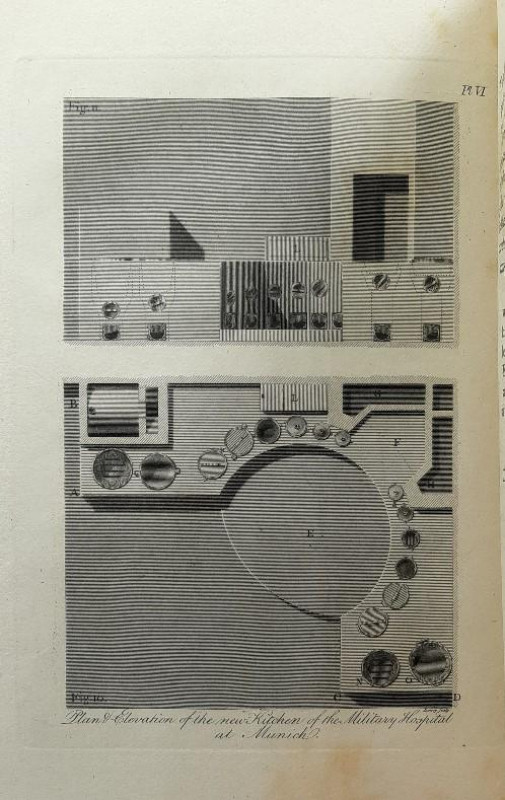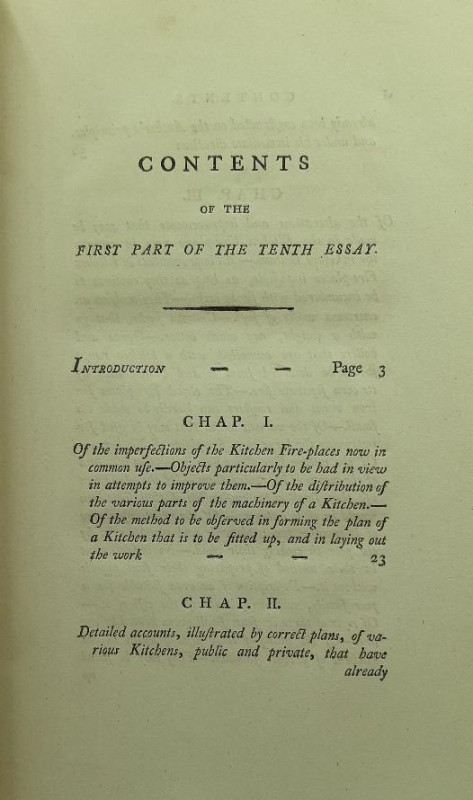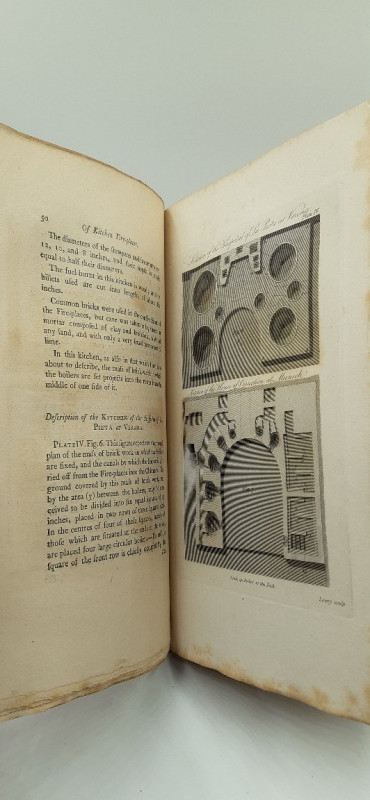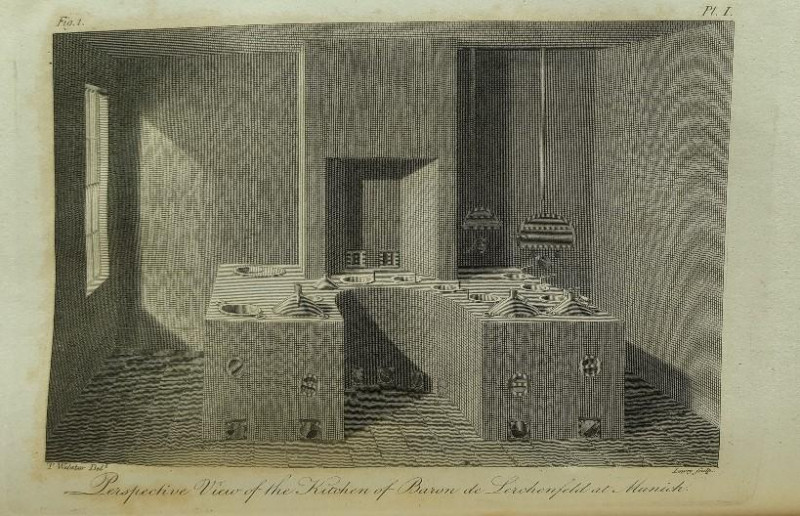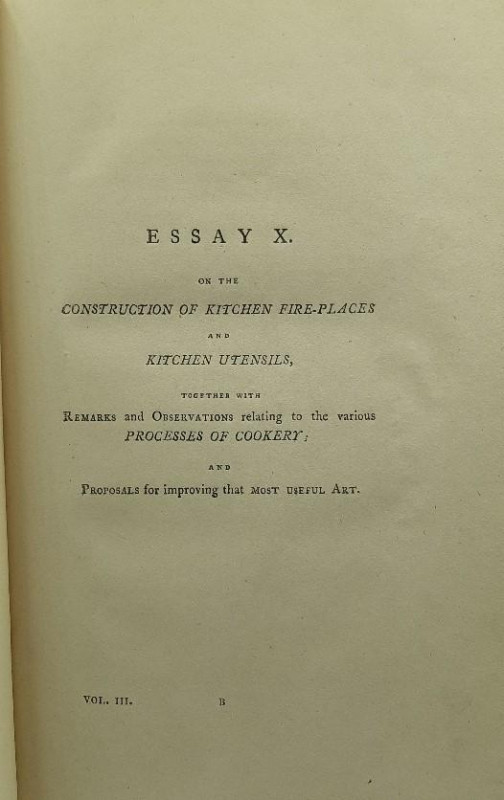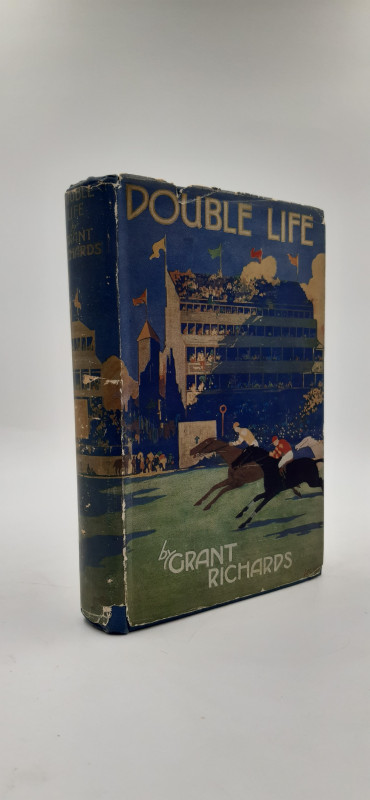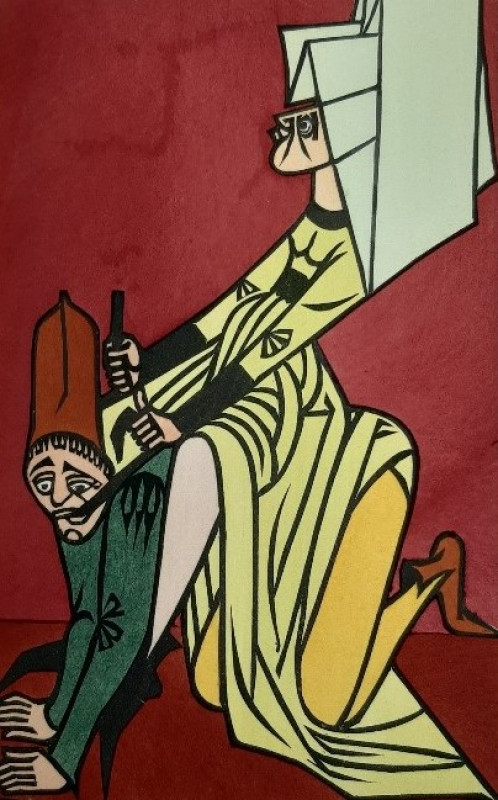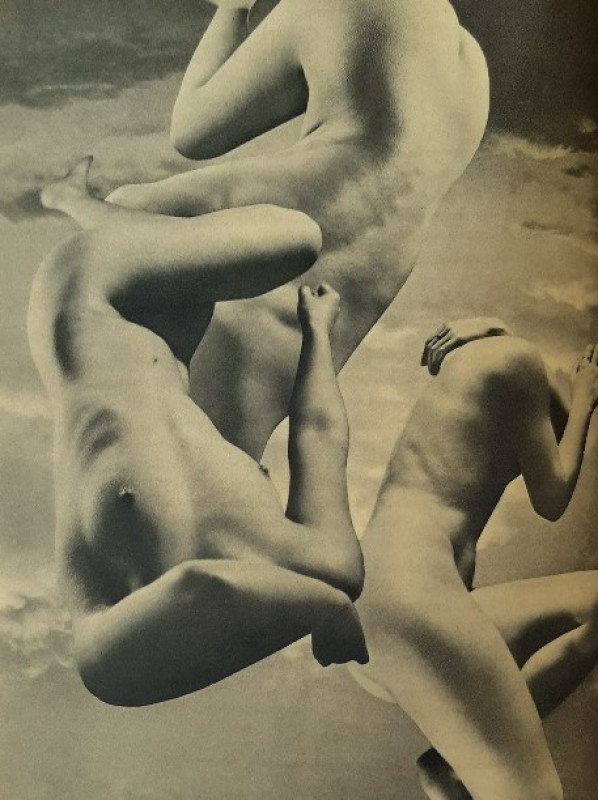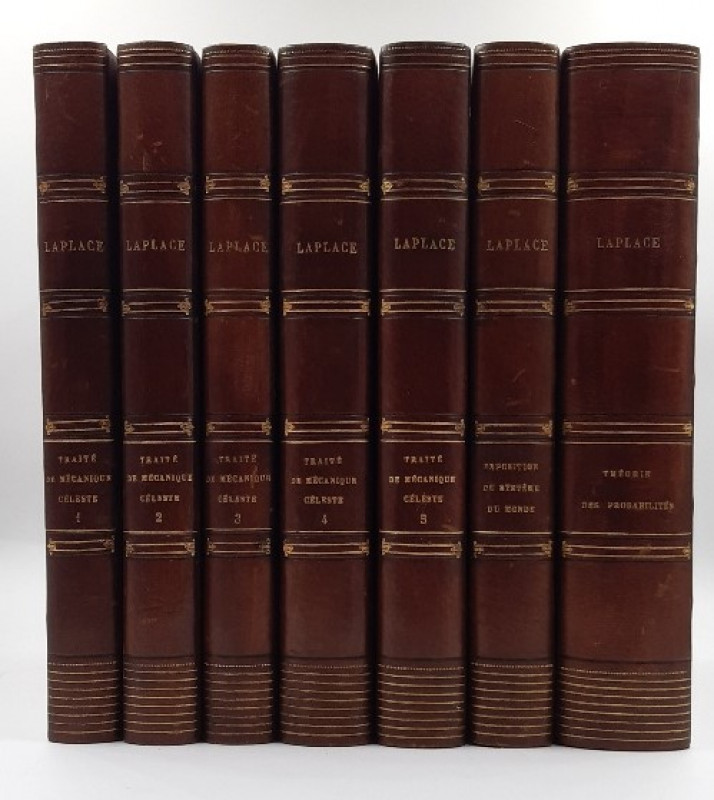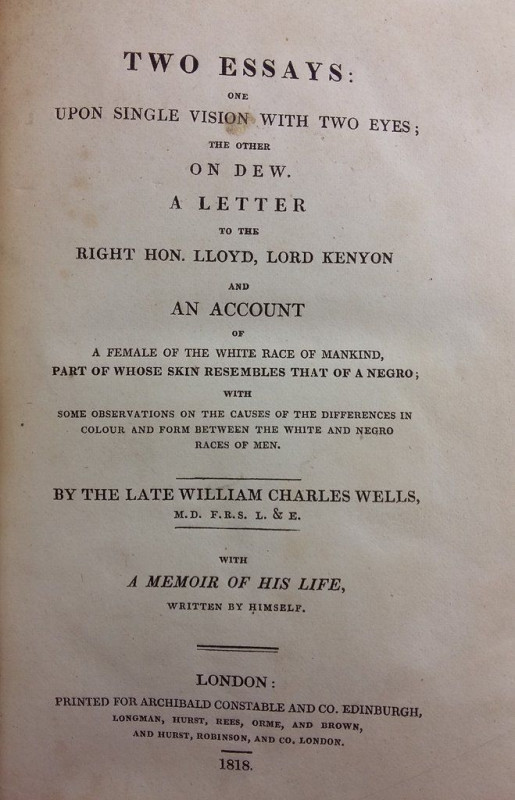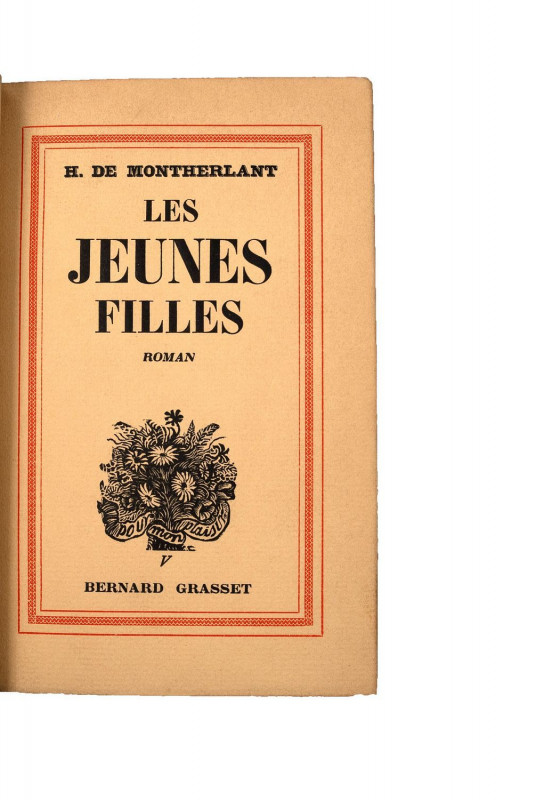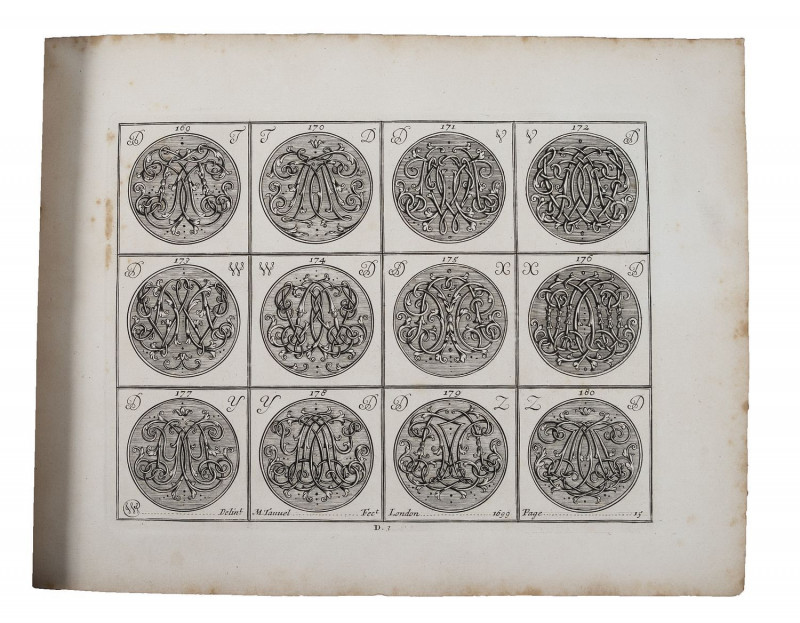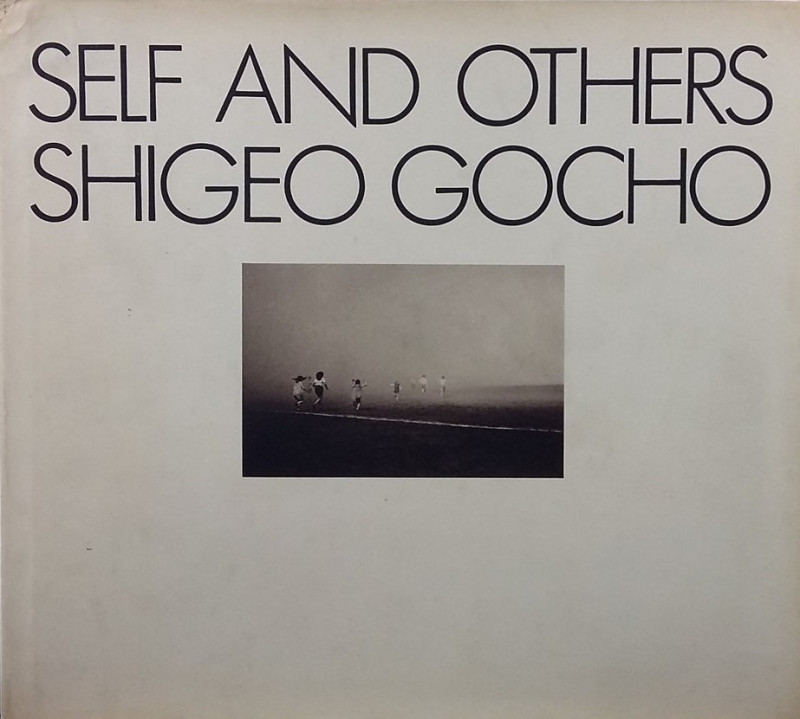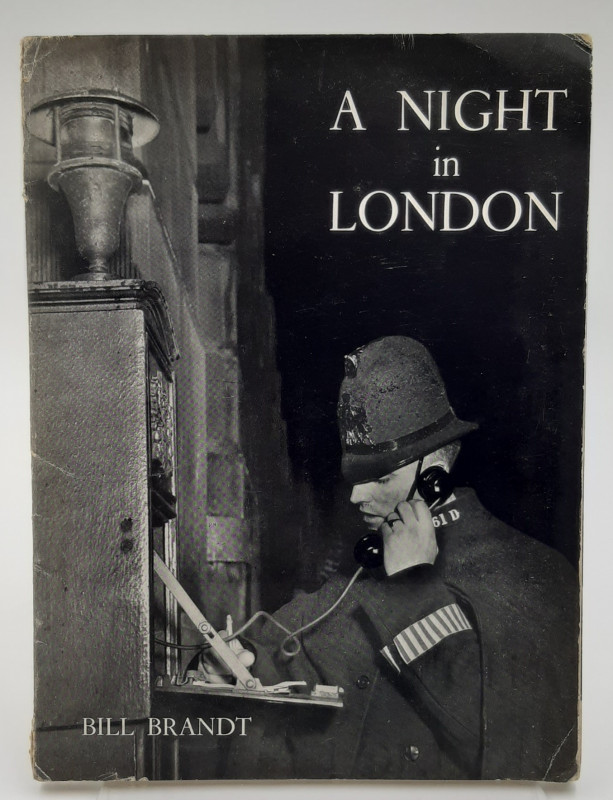Experimental Essays, Political, Economical, and Philosophical. Essay X. Part I
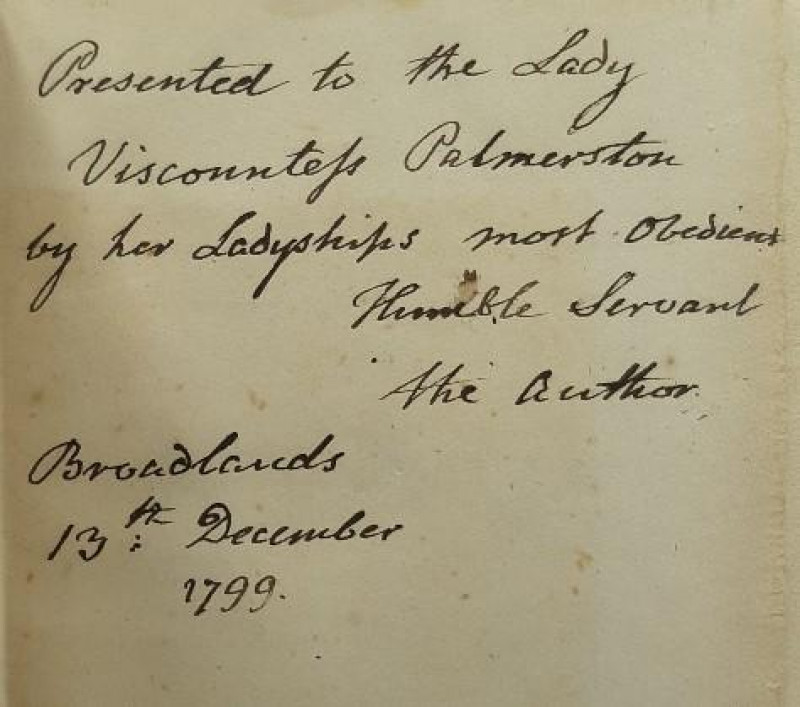
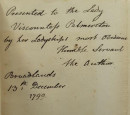
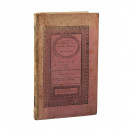






Book Description
Experimental Essays, Political, Economical, and Philosophical. Essay X. Part I On the Construction of Kitchen Fire-Places, and Kitchen Utensils, together with Remarks and Observations relating to the various Processes of Cookery and Proposals for improving that most useful art.
First edition. Inscribed to Viscountess Palmerston. 8vo. 250x150mm. pp. vii [1], 94, [2bl]. Seven engraved plates (thirteen illustrations) by Wilson Lowry. Original pink paper covered boards, the upper cover being the title page. Recently rebacked with most of the original spine laid down, very good condition, with slight bumping and creasing to corners. Some foxing particularly to the margins of the plates and a single worm track from E2 to the end but otherwise very good internally. The three parts of Essay X were sold separately and also issued as Vol. III of Rumford's Experimental essays in various editions. Count Rumford's Essay X, Part I is a scarce work, Worldcat locating a copy at the Bodleian and ESTC recording a further two copies, at Cornell and the University of Oregon. The present copy is of particular interest owing to its associations.
Dealer Notes
The inscription reads: “Presented to the Lady Viscountess Palmerston by Ladyships most Obedient Humble Servant the Author. Broadlands 13th December 1799”.
The inscription is more than just the mark of a friendship: within it is hidden a story of science, invention and philanthropy. Lady Palmerston (née Mary Mee) first met Rumford in 1793 when she and her husband were travelling in Europe. Rumford, who was born in America in 1753, showed an early interest in scientific experimentation. In 1776 unhappy with the Declaration of Independence, he left America for Britain where he carried out covert activity on behalf of the British government. Returning to America, he raised a regiment in support of the King. His most famous act of military aggression was the destruction of a church to build fortifications and the use of gravestones to make baking ovens thus commencing a lifelong fascination with the design of kitchens and cooking equipment. In 1784, Rumford was knighted by George III and in 1792, he was made a Count of the Holy Roman Empire after nine years of service to the court of the Elector of Bavaria. Central to his work was the development of the humble kitchen stove. He recognised the dangers of poor heating and a poor diet and the stove helped solve both problems. He was also an expert on fireplaces and chimneys and one of his first experiments in creating an efficient chimney system was in 1795 in the Palmerstons’ London house.
In 1799, Lady Palmerston established a public kitchen and a “school of industry” for poor children in Romsey (near the family’s country home of Broadlands where Rumford inscribed this book). This was designed to provide food for those affected by the shortages caused by the bad harvests of the 1790s. Her philanthropy was, in part, inspired by Rumford whose work in Germany was clearly and intentionally charitable. This Essay X contains examples of his stoves made for prisons and hospitals in Munich.
In November 1799, Lady Palmerston bought kitchen equipment for her new ventures. She had seen Rumford’s stoves and other equipment in the house of a friend and asked Rumford to equip her Romsey kitchen and school. In a letter of 26th November 1799 from Rumford to Lady Palmerston, the Count explains how he has bought a grate, roaster, boiler and four ovens “for the purpose of cooking for the Poor who frequent your School of Industry”. At the beginning of this letter Rumford reprimands the Countess for not having read “the Treatise I wrote expressly for your private use”. This may either have been a manuscript of this current Essay or one of Rumford’s earlier works on the subject. Either way, in this copy of Essay X with its inscription made when staying with the Palmerstons, he took the opportunity of cementing not only their friendship but their philanthropic links. Lady Palmerston was clearly grateful to Rumford for all his help and encouragement In a letter to Henry Temple dated 24th February 1802 she wrote how she was “obliged to Count R for having put me in a way to do some good in a place which, too extensive for particular charity, I must do some on a large scale”.
The inscription is more than just the mark of a friendship: within it is hidden a story of science, invention and philanthropy. Lady Palmerston (née Mary Mee) first met Rumford in 1793 when she and her husband were travelling in Europe. Rumford, who was born in America in 1753, showed an early interest in scientific experimentation. In 1776 unhappy with the Declaration of Independence, he left America for Britain where he carried out covert activity on behalf of the British government. Returning to America, he raised a regiment in support of the King. His most famous act of military aggression was the destruction of a church to build fortifications and the use of gravestones to make baking ovens thus commencing a lifelong fascination with the design of kitchens and cooking equipment. In 1784, Rumford was knighted by George III and in 1792, he was made a Count of the Holy Roman Empire after nine years of service to the court of the Elector of Bavaria. Central to his work was the development of the humble kitchen stove. He recognised the dangers of poor heating and a poor diet and the stove helped solve both problems. He was also an expert on fireplaces and chimneys and one of his first experiments in creating an efficient chimney system was in 1795 in the Palmerstons’ London house.
In 1799, Lady Palmerston established a public kitchen and a “school of industry” for poor children in Romsey (near the family’s country home of Broadlands where Rumford inscribed this book). This was designed to provide food for those affected by the shortages caused by the bad harvests of the 1790s. Her philanthropy was, in part, inspired by Rumford whose work in Germany was clearly and intentionally charitable. This Essay X contains examples of his stoves made for prisons and hospitals in Munich.
In November 1799, Lady Palmerston bought kitchen equipment for her new ventures. She had seen Rumford’s stoves and other equipment in the house of a friend and asked Rumford to equip her Romsey kitchen and school. In a letter of 26th November 1799 from Rumford to Lady Palmerston, the Count explains how he has bought a grate, roaster, boiler and four ovens “for the purpose of cooking for the Poor who frequent your School of Industry”. At the beginning of this letter Rumford reprimands the Countess for not having read “the Treatise I wrote expressly for your private use”. This may either have been a manuscript of this current Essay or one of Rumford’s earlier works on the subject. Either way, in this copy of Essay X with its inscription made when staying with the Palmerstons, he took the opportunity of cementing not only their friendship but their philanthropic links. Lady Palmerston was clearly grateful to Rumford for all his help and encouragement In a letter to Henry Temple dated 24th February 1802 she wrote how she was “obliged to Count R for having put me in a way to do some good in a place which, too extensive for particular charity, I must do some on a large scale”.
Author
RUMFORD, Count [Benjamin Thomson, Reichsgraf von Rumford]
Date
1799
Binding
Original pink paper covered boards
Publisher
London: Printed by A Strahan for T. Cadell Jun. and W. Davies.
Condition
Very good
Pages
vii, [1], 94, [2bl]
Friends of the PBFA
For £10 get free entry to our fairs, updates from the PBFA and more.
Please email info@pbfa.org for more information
